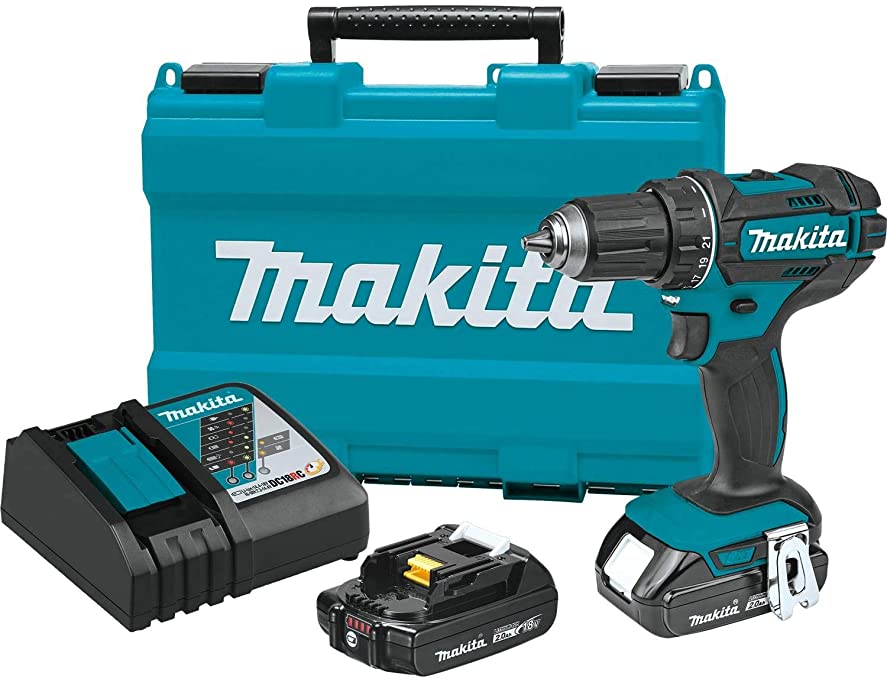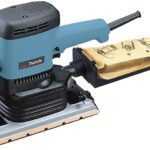

The maximum torque produced by a 4-pole motor built by Makita is 480 in.lbs.
An economical mechanical two-speed transmission (0-600 and 0-1,900 RPM) for a wide variety of drilling and driving applications.
Extreme Protection Technology (XPT) is incorporated into the design, which is intended to increase dust and water resistance while working in harsh job site conditions.
The work area is illuminated by two L.E.D. lights with an afterglow.
Increased comfort is provided by an ergonomically designed handle with rubberized soft grip.
A fast-charging lithium-ion battery and a compact design make the Makita 18V Compact Lithium-Ion Cordless 1/2″ Driver-Drill (XFD10R) an excellent choice for small- to medium-sized jobs where power, performance, and superior ergonomics are important. It is equipped with a 4-pole motor that produces 480 in. lbs. of maximum torque as well as 25 percent more speed than the previous generation. The XFD10R is powered by a 4-pole motor built by Makita that produces 480 inch-pounds of Max Torque and is equipped with a two-speed transmission made entirely of metal (0-600/0-1,900 RPM). It has a compact and ergonomic design with less weight and better balance, which helps to reduce operator fatigue. It also has a rubberized soft grip, which helps to increase comfort while working. Because of the built-in LED light, it is possible to work in dark areas and close quarters with this tool. Extreme Protection Technology (XPT) is incorporated into the drill’s design to improve water and dust resistance, allowing it to be used in the most demanding job site environments.
For the first three months that I owned it, I was in love with it. That workhorse was up to any task I threw at it and then some. The chuck, however, will slip on drill bits when going through aluminum, screwing through the thinnest plywood, and even loosening bolts that have been hand tightened just 5 months later.
Despite the fact that I initially fell in love with the drill, I cannot recommend it because you might end up with a dud like mine, and with a repair cost of approximately $50-$60 plus shipping (through a Makita distributor), you’ll be forced to purchase a new one.


